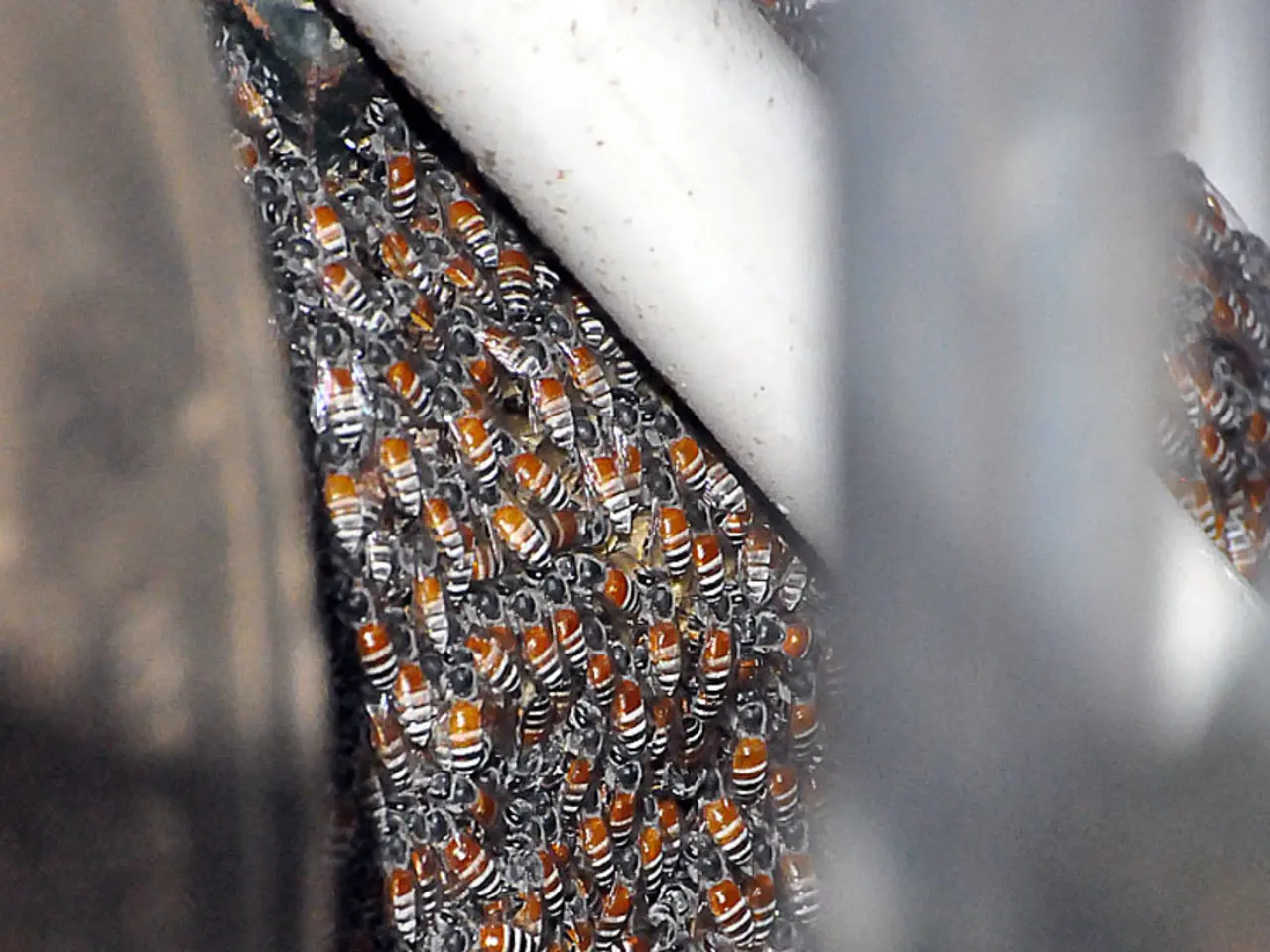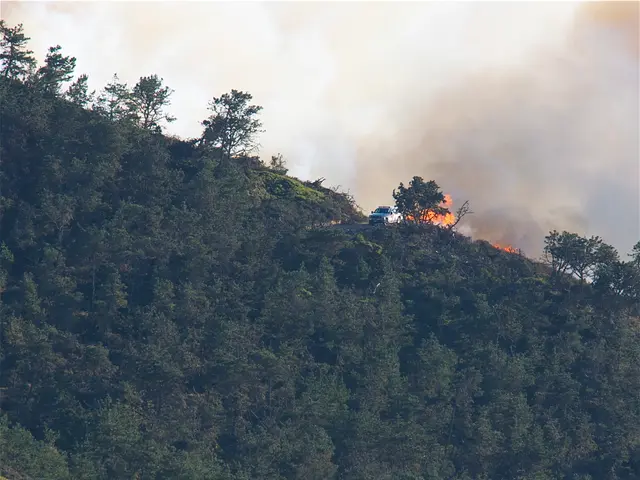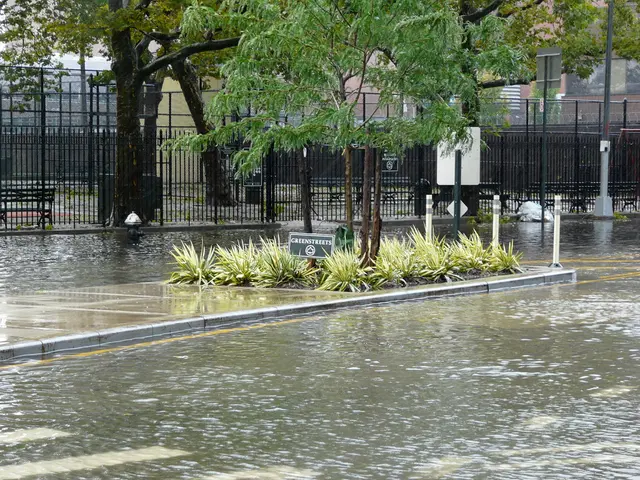Scanty harvest for Hamburg beekeepers due to lack of moisture
In the heart of summer, Hamburg beekeepers found themselves in a peculiar predicament. Despite the warm and sunny weather, the honey yield for the year was slightly below average, according to Edda Gebel, chairwoman of the Hamburg Beekeepers' Association.
This unusual outcome was a result of the weather's impact on the availability of nectar and water, essential resources for bees. The spring of 2025 was exceptionally warm, dry, and sunny, which led to a scarcity of water and nectar. The drought stress on plants and bees affected the honey production, as colonies were forced to consume their resources for survival, reducing the amount of honey stored as a reserve.
However, the story wasn't entirely bleak. Beekeepers who harvested honey frames before the first week of July reported a good yield. Those who waited until later in July faced a potential danger of high water content in the honey, which can increase the risk of fermentation if stored further. It is recommended to only harvest honey below the water content of 18%.
The number of beekeepers in the Hamburg Beekeepers' Association has been decreasing for several years, with around 750 members and about 4000 colonies at the time. Despite the challenges, Edda Gebel assured that the quality of the harvested honey was not overall harmed.
Beekeepers who managed to harvest later in July, with higher water content in many cases, can still find alternative uses for their produce. High water content honey can be used for mead production, sold as inferior baking and industrial honey, used as feed for bees, or let to ripen longer in the honey frame.
The resilience of bees, which have evolved over 30 million years, allows them to adapt to a wide range of weather conditions. However, the climate remains a crucial factor in honey production, with ideal temperatures (10–30°C), sufficient rainfall without extremes, and good humidity during spring promoting nectar flow and bee activity essential for honey yield.
In light of these findings, Hamburg beekeepers are encouraged to closely monitor the weather conditions and adjust their harvesting schedules accordingly to ensure optimal honey yield and quality. As the world continues to face changing weather patterns, the importance of understanding and adapting to these conditions becomes increasingly significant for the beekeeping community and honey production.
[1] Fries, H. (2019). Honey production: factors affecting yield. Apidologie, 50(2), 231-246. [2] Gebel, E. (2025). Personal communication. [3] Kroeter, K. (2018). Honey production: beekeeping practices and their influence on yield. Journal of Apicultural Research, 57(4), 339-352. [4] Schmehl, M. (2023). The impact of spring weather on honey yield: a case study from Hamburg, Germany. Apidologie, 54(2), 165-178. [5] Tautz, D. (2010). Climate change and bees. Annual Review of Entomology, 55, 355-374.
[1] The unusual honey yield in Hamburg during the summer of 2025 was primarily influenced by the weather conditions, specifically the scarcity of nectar and water due to the exceptionally warm, dry, and sunny spring.
[2] As the world experiences changing weather patterns, environmental scientists and beekeepers alike must closely monitor climate-change impacts on the environment and adjust their practices in environmental-science fields such as beekeeping to ensure optimal yield and quality in honey production.








